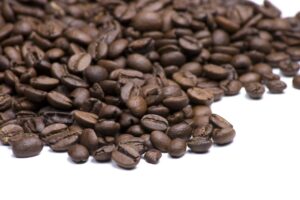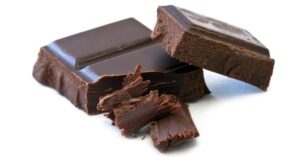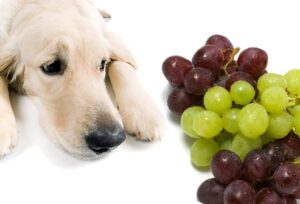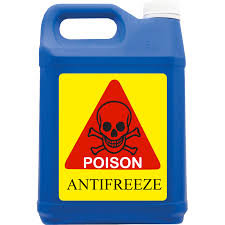-
Adopt
-
Veterinary Care
Services
Client Information
- What to Expect – Angell Boston
- Client Rights and Responsibilities
- Payments / Financial Assistance
- Pharmacy
- Client Policies
- Our Doctors
- Grief Support / Counseling
- Directions and Parking
- Helpful “How-to” Pet Care
Online Payments
Referrals
- Referral Forms/Contact
- Direct Connect
- Referring Veterinarian Portal
- Clinical Articles
- Partners in Care Newsletter
CE, Internships & Alumni Info
CE Seminar Schedule
Emergency: Boston
Emergency: Waltham
Poison Control Hotline
-
Programs & Resources
- Careers
-
Donate Now
 Along with holiday and winter fun comes a host of hazards for pets ‑ ingested substances that can be harmful or even cause death. To help pet owners handle these emergencies, the Angell Emergency Service is open 24/7, 365 days a year in both our Boston and Waltham locations. Our Emergency/Critical Care unit always has experienced, emergency veterinarians on duty to see emergencies and to monitor hospitalized patients.
Along with holiday and winter fun comes a host of hazards for pets ‑ ingested substances that can be harmful or even cause death. To help pet owners handle these emergencies, the Angell Emergency Service is open 24/7, 365 days a year in both our Boston and Waltham locations. Our Emergency/Critical Care unit always has experienced, emergency veterinarians on duty to see emergencies and to monitor hospitalized patients.
Here is a list of items that you should keep away from your pets this holiday season (for a printable version click here):
- Chocolate or Coffee:

Vomiting, rapid heart rate and signs of anxiety can be seen with the ingestion of as little as 1/4 ounce of baking chocolate by a 10-pound dog. Coffee can produce the same effects.
- Xylitol:
Xylitol is an artificial sweetener commonly found in sugar- free sweets. Once ingested, it is quickly absorbed into the bloodstream resulting in profound hypoglycemia (low blood sugar), liver disease, and bleeding abnormalities. Signs of xylitol toxicity can occur between 9-72 hours of ingestion and include vomiting, lethargy, collapse, and seizures. - Christmas Tree Preservative/Water:
Preservative may contain fertilizers, which, if ingested, can upset the stomach. Stagnant tree water can be a breeding ground for bacteria, which can also lead to vomiting, nausea, and diarrhea.
- Ornaments, Ribbons, & Tinsel:
While none of these are directly toxic, ribbon and tinsel can cause gastrointestinal blockage that can be life-threatening to pets.
- Holiday Plants: Holly, Mistletoe, Lilies, & Poinsettia:

Eating holly could produce nausea, vomiting, diarrhea and lethargy. If a dog or cat ingests mistletoe, gastrointestinal upset and possibly even cardiovascular problems could result. All parts of lilies (both Lilium and Hemerocallis species) are highly toxic to cats, with the potential to produce life-threatening kidney failure even from small ingestions. While the toxic potential of poinsettia has been greatly exaggerated, mild stomach upset could still occur if ingested.
- Yeast Dough:
If swallowed, uncooked yeast dough can rise in the stomach and cause extreme discomfort. Pets who have eaten bread dough may experience abdominal pain, bloat, vomiting, disorientation and depression. Since a breakdown product of rising dough is alcohol, it can also potentially cause alcohol poisoning. Many yeast ingestions require surgical removal of the dough, and even small amounts can be dangerous.
- Garlic, Onions, & Chives:
Large amounts of these products can significantly damage red blood cells causing anemia and possible kidney failure. Signs of toxicity include weakness, pale gums, and rapid heart rate.
- Table Food (Fatty/Spicy), Moldy Foods, Poultry Bones:
Poultry bones can splinter and cause damage or blockage in the gastrointestinal tract. Spicy or fatty foods could possibly lead to inflammation of the pancreas. Additionally, moldy or spoiled foods could produce food poisoning, tremors or seizures.
- Macadamia Nuts:
In dogs, ingestions can produce vomiting, weakness (particularly in the hind legs), depression, lack of coordination and tremors.
- Grapes & Raisins:
Ingestions of raisins and grapes have been associated with acute kidney failure in dogs.
- Alcoholic Beverages:
If ingested, alcohol can potentially result in vomiting, diarrhea, lack of coordination, central nervous system depression, difficulty breathing, tremors, acidosis, coma and even death.
- Antifreeze:
Antifreeze products containing ethylene glycol are highly toxic and can produce life-threatening kidney damage, even in small amounts. Many windshield washer products contain methanol, which if ingested can cause drooling, vomiting, drunkenness, and severe central nervous system depression.
- Ice Melt:
Ice melt products may contain ingredients that can be very irritating to the skin and gastrointestinal tract, and could also potentially result in more severe effects including depression, weakness, disorientation, low blood pressure, cardiac problems, seizures, coma and even death depending on the type of ice melt and circumstances of exposure.
If you suspect your pet may have ingested any of these items, contact your veterinarian or Angell’s Emergency Service at 617-522-7282 (Boston) or 781-902-8400 (Waltham).